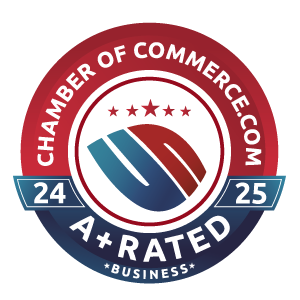
An FHA (Federal Housing Administration) loan is a loan insured against default by the FHA.
In other words, the FHA guarantees that a lender won’t have to write off a loan if the borrower defaults – the FHA will pay. FHA loans are not for everybody. Nevertheless, they are a great help to some borrowers. FHA loans allow people to buy a home with a down payment as small as 3.5%. Other loans might not allow such a low down payment.
Who can get an FHA Loan?
Almost anybody can get an FHA loan. There are no income limits. However, there are limits on how much you can borrow. In general, you’re limited to median home prices in your area. To find the limits in your region, visit HUD’s Website. To qualify for an FHA loan, you’ll need to have reasonable debt to income ratios. You don’t need perfect credit but you will need to have a credit score of at least 620.
Benefits of FHA loans:
- 3.5% down payment required on purchase
- Easier to use gifts for down payment and closing costs
- No prepayment penalty
- Financing for home improvement using FHA 203k programs
Up To 90% LTV | Loan To Value | No Mortgage
Insurance | Credit Scores Starting At 600
- Loans up to 10 million with 200k minimum loan amount
- 10% down on primary home purchase up to 3 million, NO mortgage insurance
- Two year self-employed required
- 12 to 24 month business or personal bank statements
- 30, 20, 15 year fixed or ARM available
- Interest only products available
- Purchase, cash out or rate and term refinancing
- Owner occupied, second homes and investment available
- Non-Warrantable condos allowed
- Two years seasoning for foreclosure, short sale, bankruptcy or deed in lieu
- Borrower can own as little as 50% of the business for the business bank statement mortgage and 25% for personal bank statements
Top Mortgage Questions for First-Time Home Buyers F&Qs”
How much house can I afford? (Affordability)
Determining your home buying budget is the critical first step. Lenders use your debt-to-income (DTI) ratio as a primary measure of your financial health. Your total monthly debt, including your future monthly mortgage payment, should ideally not exceed 43% of your gross monthly income. Tools like an online mortgage calculator can provide a helpful estimate of your maximum home price.
What credit score do I need for a mortgage? (Credit Score & Eligibility)
Your credit score is a major factor in mortgage eligibility and interest rates. While a minimum score of 620 is often required for a conventional mortgage, lower scores may qualify for an FHA loan. A higher score will unlock the most competitive mortgage rates, significantly reducing the total cost of your home loan.
How much do I need for a down payment? (Down Payment Options)
The belief that you must have a 20% down payment is a common myth. Many first-time buyer programs and low-down payment mortgages are available. For instance, FHA loans require as little as 3.5% down, conventional loans you can put down 5% and qualifying for a VA loan or USDA loan can mean a zero-down payment at all. Understanding these options is key to making homeownership more accessible.
What are closing costs? (Upfront Costs)
Closing costs are a separate set of fees that you pay to finalize your mortgage application and complete the real estate transaction. These can include appraisal fees, loan origination fees, and title insurance. They typically amount to 2% to 5% of the home’s purchase price and are an important part of your overall home buying costs.
What is the difference between pre-qualification and pre-approval? (The Mortgage Process)
A mortgage pre-qualification is a quick, initial estimate of your potential loan amount. Mortgage pre-approval, however, is a much more valuable step in the mortgage process. It involves a full review of your financial documents and gives you an official letter from the lender stating the amount you are approved for. This makes your offer much stronger to a home seller.
What types of mortgages are available for first-time buyers? (Loan Types)
Choosing the right type of mortgage is a crucial decision.
- Conventional loans: Most common home loan from private lenders.
- FHA loans: Government-backed mortgage for first-time buyers with more flexible requirements.
- VA loans: An exclusive home loan for eligible military service members, offering no down payment and no PMI.
- USDA loans: For properties in designated rural areas, offering a 0% down payment.
What is the difference between fixed-rate and adjustable-rate mortgages? (Interest Rates)
A fixed-rate mortgage provides peace of mind with a consistent interest rate and predictable monthly payments for the entire loan term. An adjustable-rate mortgage (ARM) has a lower initial rate that can change after a set period, which can be an option if you plan to sell or refinance within a few years.
What does my monthly mortgage payment include? (Monthly Payments & Costs)
Your monthly mortgage payment is more than just principal and interest. It’s often structured as PITI:
- Principal: The portion of the payment that pays down the loan balance.
- Interest: The cost of borrowing the funds.
- Taxes: Your estimated property taxes.
- Insurance: Your homeowner’s insurance and, if applicable, Private Mortgage Insurance (PMI), which is typically required for conventional loans with less than a 20% down payment.



